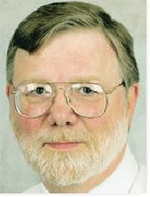The HCFO program ended in December 2016.
This site will no longer be updated, and some elements may not appear correctly.
Randall R. Bovbjerg, J.D.

Randall Bovbjerg, a principal research associate in the Health Policy Center of The Urban Institute, has followed the seemingly intractable issues surrounding medical malpractice since the mid-1970s. Under a recently completed HCFO grant, Bovbjerg examined the rapid rise of liability premiums, its implications for patient relations and safety reform, rationales for more open disclosure of risks and injuries, and how some hospitals have implemented policies improving transparency of outcomes to patients.
Bovbjerg reviewed the literature on medical liability insurance and the current malpractice "crisis". He also studied safety and transparency, analyzing arguments that open disclosure may make patients less litigious. Finally, Bovbjerg and colleague Robert A. Berenson, M.D., conducted an exploratory case study of transparency by interviewing hospital risk managers and medical directors in four communities.
In today's well-publicized debate among doctors, lawyers, and insurers about whether underlying legal costs or the insurance cycle has driven malpractice premiums up so sharply, both camps are "partly right," notes Bovbjerg in a recent publication. Physician/insurer explanations are "more right" because despite cyclical fluctuations "over time prices must reflect underlying costs of claims, which are driven by legal and social trends, not insurance markets."
In the current malpractice insurance crisis, practitioners' "very real fear of liability reinforces traditional tendencies toward secrecy and hinders candid dialogue with patients," says Bovbjerg. "More open disclosure may help promote early remedial intervention, system safety improvements, and an improved medical practice climate." In a more ideal world, he argues in another article, "caregivers would tell patients and families whenever medical errors occur, and reasonable compensation would follow for those with preventable injuries."
Through telephone interviews, Bovbjerg and Berenson found that hospitals in their four study communities practice more disclosure than was traditional, mainly because of Joint Commission on Accreditation of Healthcare Organizations (JCAHO) strictures. Disclosures do not necessarily include compensation, and hospital policies seemed little affected by the tort climate in their states. The extent of disclosure could not be carefully assessed but seemed lower than might be expected from research estimates of the rate of patient injury.
Bovbjerg's other current research focuses on how to expand health coverage and the performance of state medical boards. During his career, he has written about health financing, competition, regulation, and the interactions of law and policy. At The Urban Institute since 1979, he has worked on numerous research projects and some demonstrations. Bovbjerg currently serves on the Patient Safety Workgroup of the Federation of State Medical Boards and recently served on the Joint Commission on Accreditation of Healthcare Organization's taskforce on alternatives to tort litigation and on the D.C. Health Care Reform Commission. He has taught (part time) for Duke University, Johns Hopkins University, and the University of Maryland. Previously, he was a state insurance regulator in Massachusetts and helped develop policy on methods of physician payment and insurance premium setting, licensure of health maintenance organizations, and regulation of Medigap and cancer insurance.
Bovbjerg received his A.B. from the University of Chicago and his J.D. from Harvard Law School, where he was a Felix Frankfurter Scholar. He follows his grandad's lead in pronouncing his name Bo' berg.
Articles from HCFO-funded project
Bovbjerg, R.R. "Patient Safety and Physician Silence," Journal of Legal Medicine, 2004; Vol. 25, pp. 505-16.
Bovbjerg, R.R. "Malpractice Crisis and Reform," Clinics in Perinatology, 2005; Vol. 32, pp. 203-33.
